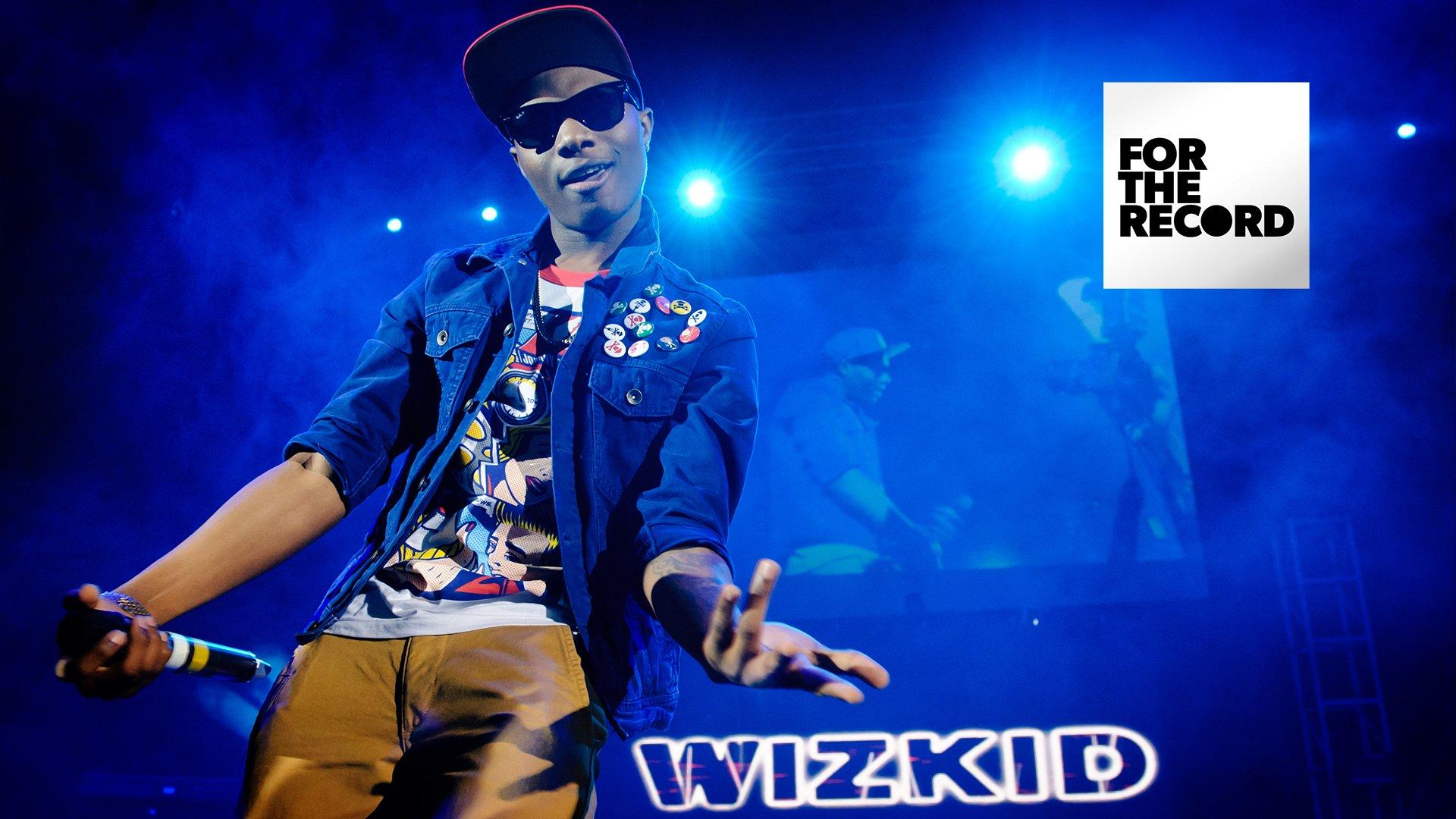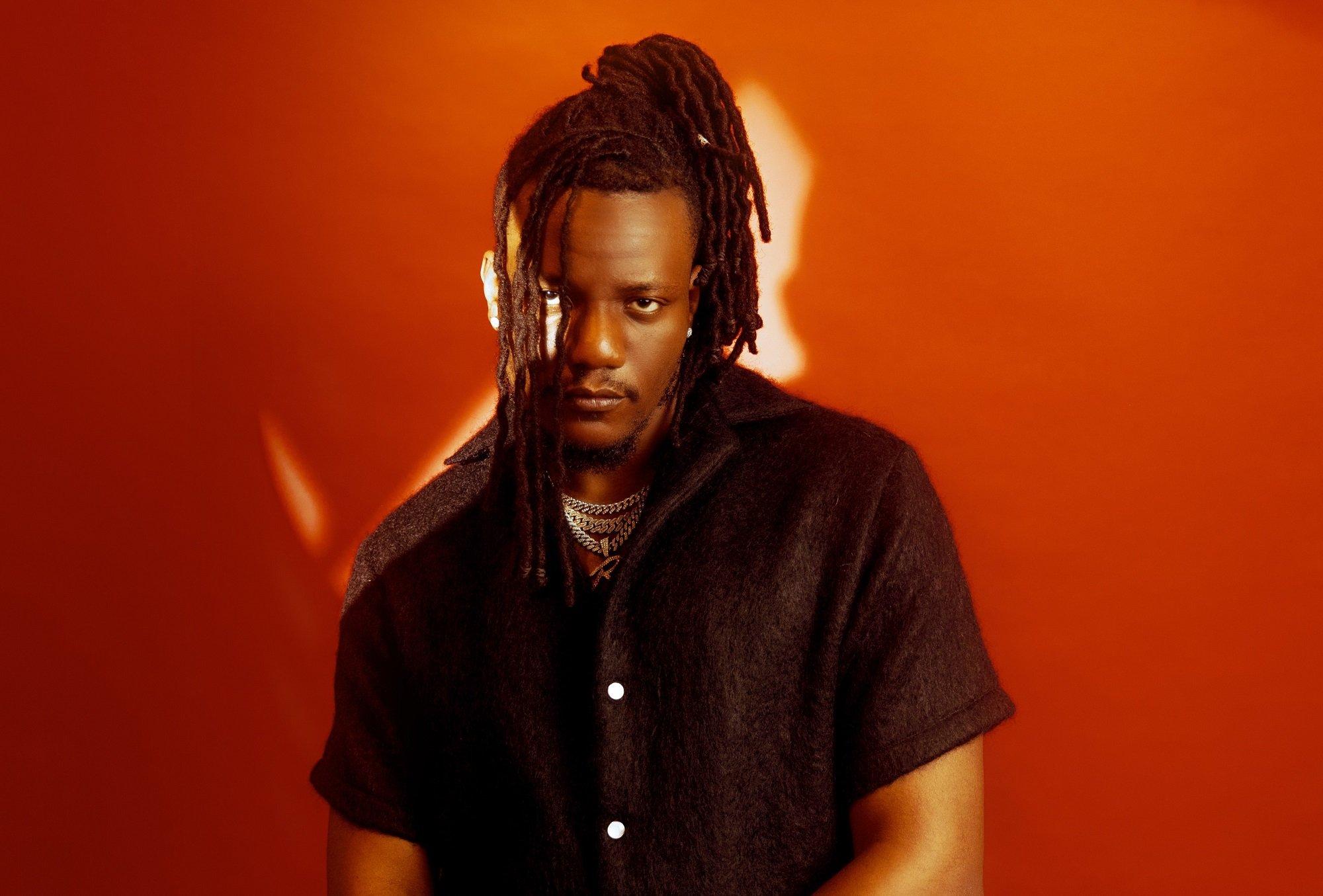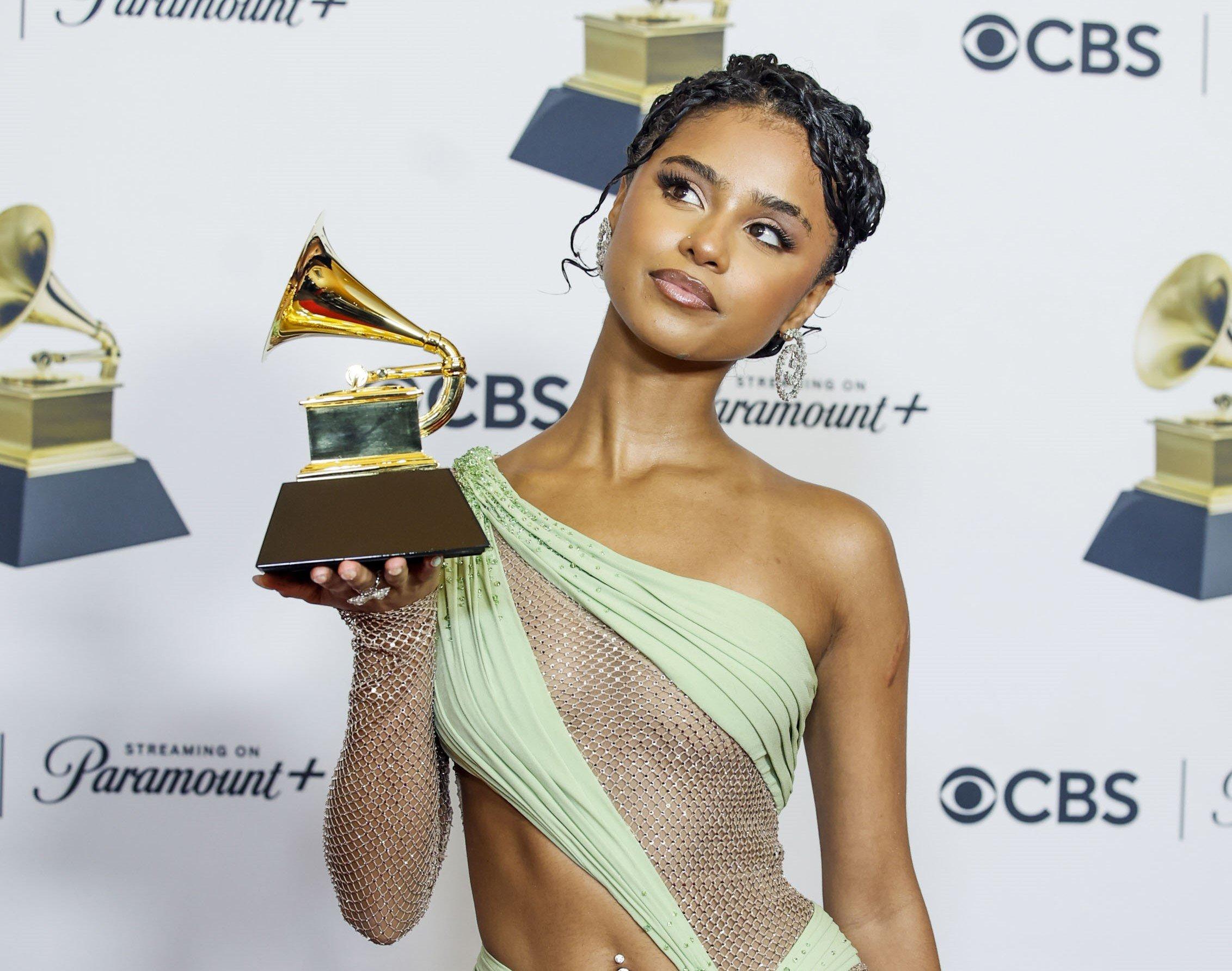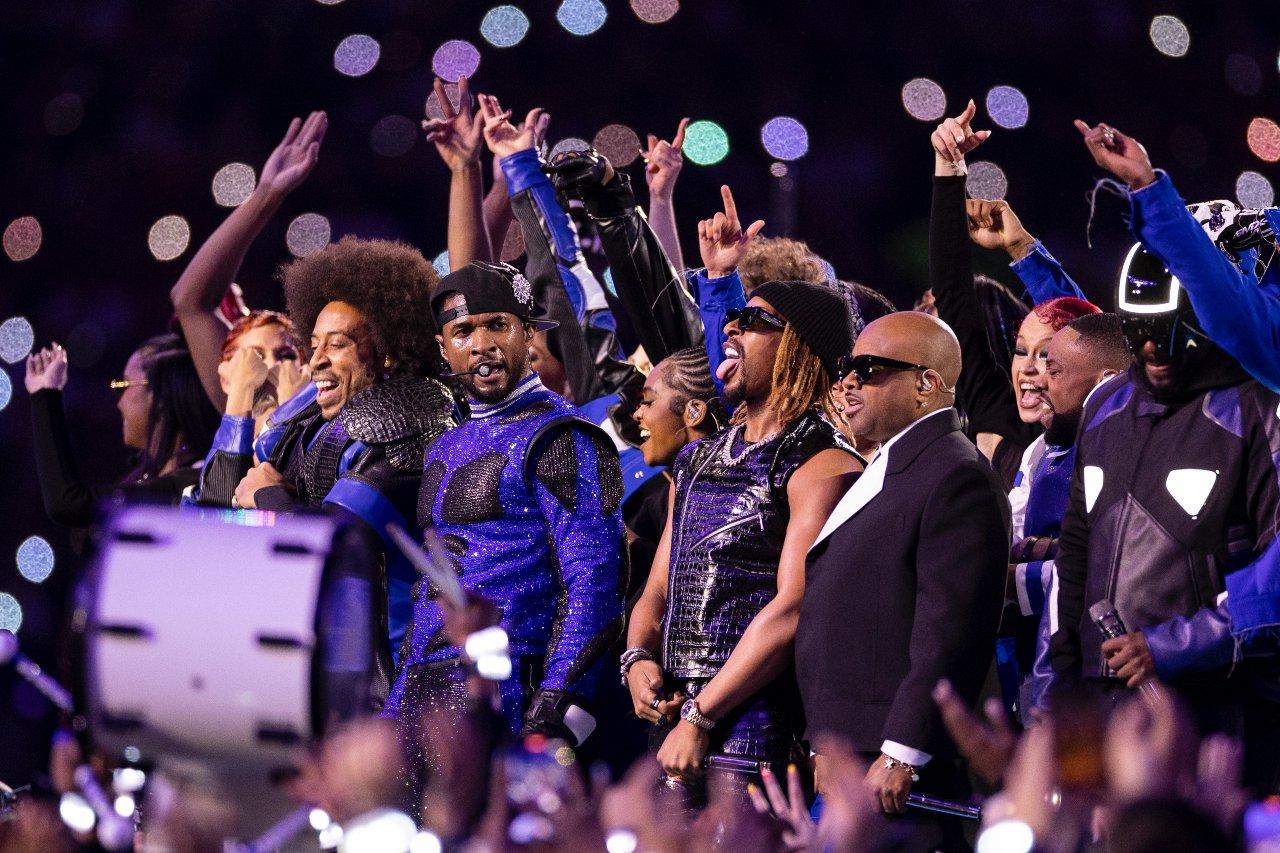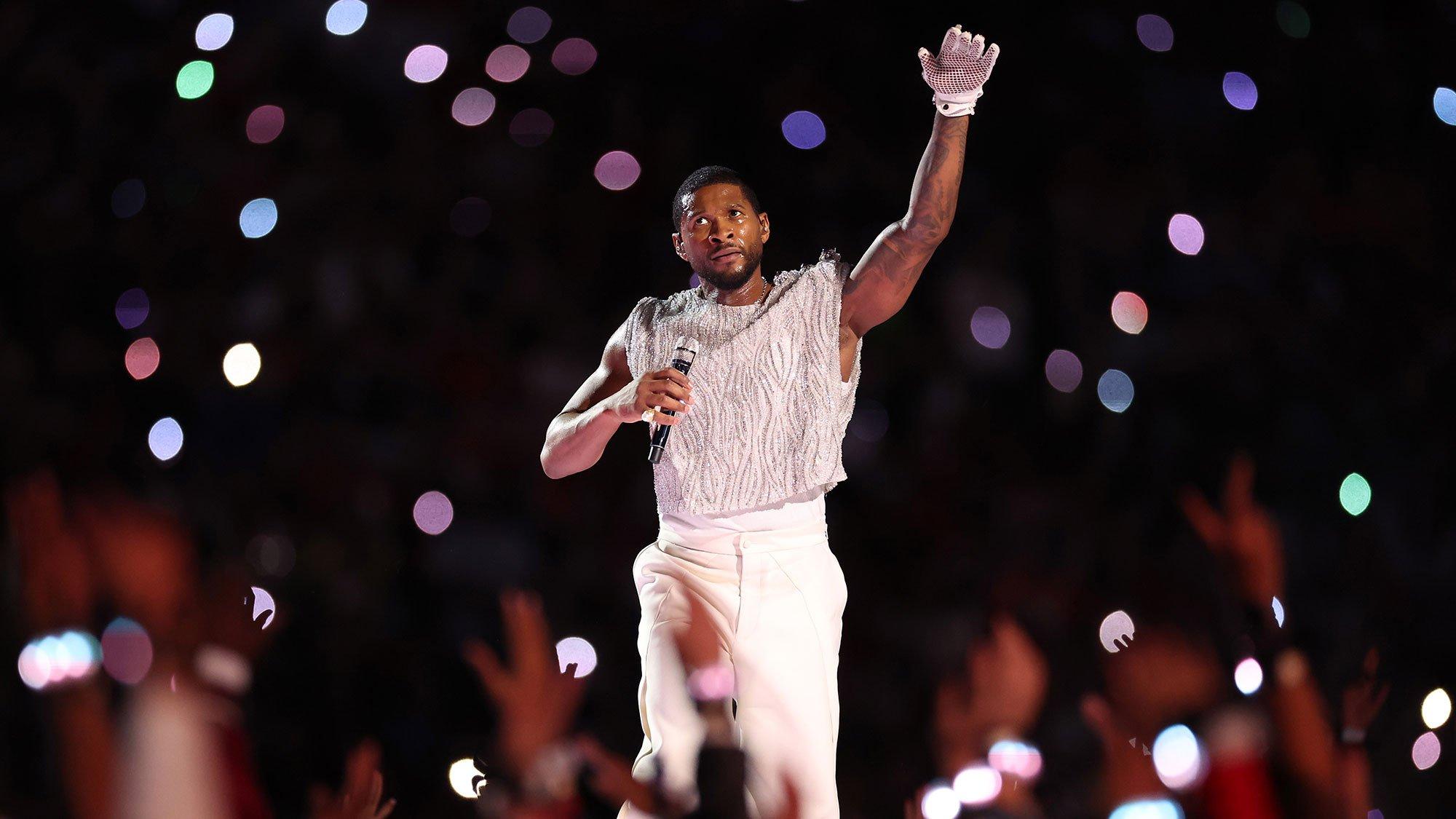If you were online during the summer of 2022, chances are you’ve heard Pheelz’s viral hit single "Finesse." The swanky Afro-fusion track (featuring fellow Nigerian artist Bnxn) ushered in a world of crossover success for Pheelz, who began his career as a producer for the likes of Omah Lay, Davido, and Fireboy DML.
Born Phillip Kayode Moses, Pheelz’s religious upbringing in Lagos state contributed to his development as a musician. He manned the choir at his father’s church while actively working on his solo music. Those solo efforts garnered praise from his peers and music executives, culminating in Pheelz's debut EP in 2021. Hear Me Out saw Pheelz fully embrace his talent as a vocalist, songwriter, and producer.
"I feel important, like I’m just molding clay, and I have control over each decision," Pheelz tells GRAMMY.com about creating his own music.
2022 saw the release of the first two tapes in his Pheelz Good trilogy: Pheelz Good I and Pheelz Good (Triibe Tape), which was almost entirely self-produced. The 29-year-old's consistency has paid off: he produced and sang on Usher’s "Ruin," the lead single from his latest album Coming Home, and also produced the album's title track featuring Burna Boy. But Pheelz isn't only about racking up big-name collaborators; the self-proclaimed African rockstar's forthcoming projects will center on profound vulnerability and interpersonal honesty. First up: Pheelz Good II EP, out May 10, followed by a studio album in late summer.
Both releases will see the multi-hyphenate "being unapologetically myself," Pheelz tells GRAMMY.com. "It will also be me being as vulnerable as I can be. And it’s going to be me embracing my "crayge" [crazy rage]...being myself, and allowing my people to gravitate towards me."
Ahead of his new project, Pheelz spoke with GRAMMY.com about his transition from producer artist, designing all his own 3D cover art, his rockstar aesthetic, and what listeners can expect from Pheelz Good II.
This interview has been edited for clarity.
What sparked your transition from singing in church to realizing your passion for creating music?
For me, it wasn’t really a transition. I just always loved making music so for me I felt like it was just wherever I go to make music, that’s where I wanna be. I would be in church and I was the choirmaster at some point in my life, so I would write songs for Sunday service as well. And then I would go to school as well and write in school, and people heard me and they would love it. And I would want to do more of that as well.
A friend of my dad played some of my records for the biggest producers in Nigeria back then and took me on as an intern in his studio. I guess that’s the transition from church music into the industry. My brothers and sisters were in the choir, but that came with the job of being the children of the pastor, I guess. None of them really did music like me; I’m the only one who took music as a career and pursued it.
You made a name for yourself as a producer before ever releasing your music, earning Producer Of The Year at Nigeria’s Headies Awards numerous times. What finally pushed you to get into the booth?
I’ve always wanted to get into the booth. The reason why I actually started producing was to produce beats for songs that I had written. I’ve always been in the booth, but always had something holding me back. Like a kind of subconscious feeling over what my childhood has been. I wasn’t really outspoken as a child growing up, so I wouldn’t want people to really hear me and would shy away from the camera in a sense. I think that stuck with me and held me back.
But then COVID happened and then I caught COVID and I’m like Oh my god and like that [snaps fingers] What I am doing? Why am I not going full steam? Like why do I have all this amazing awesomeness inside of me and no one gets to it because I’m scared of this or that?
There was this phrase that kept ringing in my head: You have to die empty. You can’t leave this earth with all of this gift that God has given you; you have to make sure you empty yourself. And since then, it’s just been back-to-back, which just gave me the courage.
How did you react to " Finesse" in former President Barack Obama’s annual summer playlist in 2022?
Bro, I reacted crazy but my dad went bananas. [Laughs.] I was really grateful for that moment, but just watching my dad react like that to that experience was the highlight of that moment for me. He's such a fan of Barack Obama and to see that his son’s music is on the playlist, it just made his whole month. Literally. He still talks about it to this day.
Experiences like that just make me feel very grateful to be here. Life has really been a movie, just watching a movie and just watching God work and being grateful for everything.
At first he [my dad] [didn’t support my career] because every parent wants their child to be a doctor, a lawyer, or an engineer. But when he saw the hunger [I have], and I was stubborn with [wanting] to do music, he just had to let me do it. And now he’s my number one fan.
Your latest single, "Go Low" arrived just in time for festival season. What was it like exploring the live elements of your art at SXSW and your headlining show in London at the end of April?
I have always wanted to perform live. I’ve always loved performing; Pheelz on stage is the best Pheelz. Coming from church every Sunday, I would perform, lead prayers and worship, so I’ve always wanted to experience that again.
Having to perform live with my band around the world is incredible man. And I’ll forever raise the flag of amazing Afro live music because there’s a difference, you know? [Laughs.] There are so many elements and so many rhythms and so many grooves
I’ve noticed that much of your recent cover art for your singles and EPs is animated or digitally crafted. What’s the significance, if any, of this stylistic choice?
It still goes back to my childhood because I wasn’t expressive as a child; I wouldn’t really talk or say how I felt. I’d rather write about it, write a song about it, write a poem about it, or draw about it. I’d draw this mask and then put how I’m feeling into that character, so if I was angry, the mask would be raging and just angry.
The angry ones were the best ones, so that stuck with me even after I started coming out of my shell and talking and being expressive; that act of drawing a mask still stuck with me. And then I got into 3D, and I made a 3D version of the mask and I made a 3D character of the mask. So I made that the main character, and then I just started making my lyric videos, again post-COVID, and making them [lyric videos] to the characters and making the actual video mine as well.
In the future, I’m gonna get into fashion with the characters, I’m gonna get into animation and cartoons and video games, but I just wanna take it one step at a time with the music first. So, in all of my lyric videos, you get to experience the characters. There’s a fight [scene] among them in one of the lyric videos called "Ewele"; there is the lover boy in the lyric video for "Stand by You"; there are the bad boys in the lyric video for "Balling." They all have their own different characters so hopefully in the near future, I will get to make a feature film with them and just tell their story [and] build a world with them. I make sure I put extra energy into that, make most of them myself so the imprint of my energy is gonna be on it as well because it’s very important to me.
You and Usher have a lengthy working relationship. You first performed together in 2022 at the Global Citizen Festival, then produced/co-wrote "Coming Home" and "Ruin." Take us through the journey of how you two began collaborating.
It started through a meeting with [Epic Records CEO] L.A. Reid; he was telling me about the album that they were working on for Usher and I’m like, "Get me into the studio and lemme see what I can cook up." And they got me into the studio, [with Warner Records A&R] Marc Byers, and I wrote and produced "Coming Home." I already had "Ruin" a year before that.
["Ruin"] was inspired by a breakup I just went through. Some of the greatest art comes from pain, I guess. That record was gonna be for my album but after I came home I saw how L.A. Reid and Usher reacted and how they loved it. I told them, "I have this other song, and I think you guys would like it for this album." And I played "Ruin," and the rest was history.
Before your upcoming EP, you’ve worked with Pharrell Williams, Kail Uchis, and the Chainsmokers in the studio. What do you consider when selecting potential collaborators?
To be honest, I did not look for these collabs. It was like life just brought them my way, because for me I’m open to any experience. I’m open to life; I do it the best I can at any moment, you understand?
Having worked with Pharrell now, Dr. Dre, Timbaland, and the Chainsmokers, I’m still shocked at the fact that this is happening. But ultimately, I am grateful for the fact that this is happening. I am proud of myself as well for how far I’ve come. Someone like Timbaland — they are literally the reason why I started producing music; I would literally copy their beats, and try to sound like them growing up.
[Now] I have them in the same room talking, and we’re teaching and learning, making music and feeding off of each others’ energy. It’s a dream come true, literally.
What's it like working with am electro-pop group like the Chainsmokers? How’d you keep your musical authenticity on "PTSD"?
That experiment ["PTSD"] was actually something I would play with back home. But the crazy thing is, it’s gonna be on the album now, not the EP. I would play it back home, like just trying to get the EDM and Afrohouse world to connect, cause I get in my Albert Einstein bag sometimes and just try and experiment. So when I met the Chainsmokers and like. "Okay, this is an opportunity to actually do it now," and we had a very lengthy conversation.
We bonded first as friends before we went into the studio. We had an amazing conversation talking about music, [them] talking about pop and electronic music, and me talking about African music. So it was just a bunch of producers geeking out on what they love to do. And then we just talk through how we think the sound would be like really technical terms. Then we get into the studio and just bang it out. Hopefully, we get to make some more music because I think we can create something for the world together.
I’ve noticed you dress a bit eccentrically. Have you always had this aesthetic?
I’ve always dabbled in fashion. Even growing up, I would sketch for my sister and make this little clothing, so like I would kick up my uniform as well, make it baggy, make it flare pants, make it fly.
I think that stuck with me until now, trying different things with fashion. And now I have like stylists I can talk to and throw ideas off of and create something together. So yeah, I want to get into the fashion space and see what the world has in store for me.
What can fans expect as you’re putting the finishing touches on your upcoming EP Pheelz Good II and your album?
Pheelz Good II, [will be] a close to the Pheelz Good trilogy of Pheelz Good I, Pheelz Good Triibe Tape and Pheelz Good II. The album is going to be me being unapologetically myself still. But it will also be me being as vulnerable as I can be.
It’s going to be me embracing my crayge [crazy rage]. Like just embracing me unapologetically and being me, being myself, and allowing my people to gravitate towards me, you get me. But I’m working on some really amazing music that I am so proud of. I’m so proud of the EP and the album.
Mr. Eazi’s Gallery: How The Afrobeats Star Brought His Long-Awaited Album To Life With African Art

